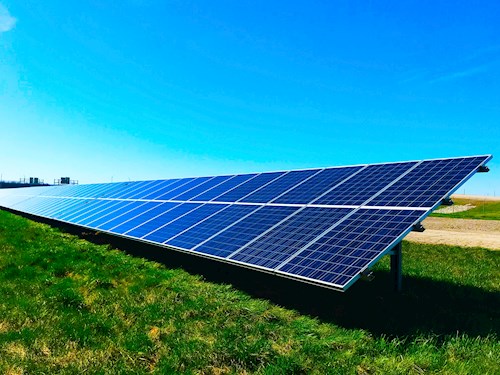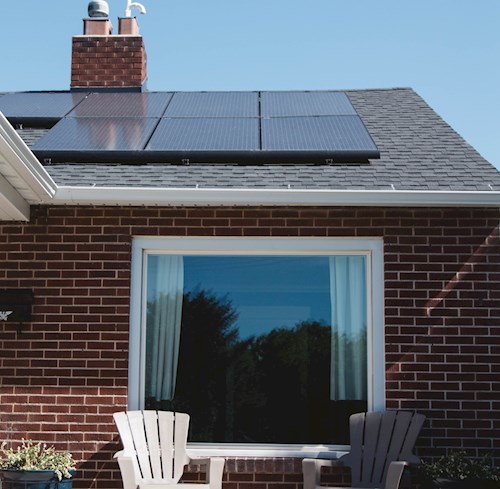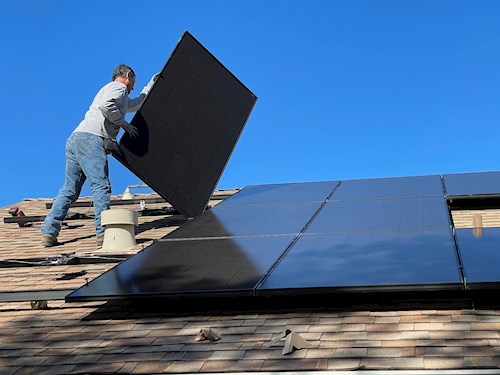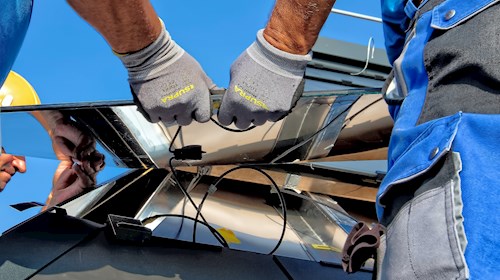


Over the past decade, photovoltaics (PV) have seen a decline in cost, primarily driven by hardware and inverter costs. The National Renewable Energy Laboratory estimates that since 2010, there has been a 64% reduction in the cost of residential, a 69% reduction in the cost of commercial rooftops, and an 82% reduction in the cost of utility-scale PV systems. For more information about efficiency gains and decline in cost, please check out the National Renewable Energy Laboratory 2020 Energy Cost Benchmarking study.

Typically, individuals and business pay for solar installations through a combination of financing and incentives.
Resources for homeowners:
Resources for businesses and nonprofits:
Understanding Policies and Law
Wisconsin state statute protects a property owner's right to install solar. Learn more about your solar rights as a homeowner here.
Solar Rights and Permitting
Wisconsin law protects a household's right to install a solar energy system on their property. Under state statute, municipalities can require a homeowner to secure a permit for the solar installation, and homeowner's associations can set design guidelines for solar installations, provided these do not "prevent or unduly restrict the construction and operation of solar energy systems." Learn more.
Learn more about permitting and your solar rights as a homeowner in Dane County here.
You can typically opt to purchase green power from your utility for a small premium. Green power means that the utility invests in and produces clean electricity from renewable energy sources, such as solar or wind. This is generally the most accessible and affordable way to invest in clean energy, and you can generally buy into a percentage of electricity (0-100%) of your monthly bill that makes sense for you. This option works well for people in apartments or homes unsuitable for solar. Learn more about your utility's green power offerings:
 Alliant Energy has a Community Solar program and Second Nature, their green-pricing program.
Alliant Energy has a Community Solar program and Second Nature, their green-pricing program.
MadiSUN Group Buy
Since 2016, the MadiSUN Group Buy Program has helped homeowners across the area install solar-electric systems on their rooftops. MadiSUN spurred over $3.5 million in solar energy investments, with solar installed at over 200 households.
How MadiSUN works
MadiSUN has three programs available to help grow solar in Madison.
Be aware of scams
Generally speaking, if it sounds too good to be true, it probably is. There have been claims about offers of free solar panels or that solar companies have to offer free solar panels if requested. However, the Department of Energy does not offer any programs to provide free solar panels, nor does it require solar companies to provide free solar panels.
Additionally, verify that your installer is licensed or certified by reputable organizations before providing personal data. The North American Board of Certified Energy Practitioners has a comprehensive list of who is licensed and certified in your area.
Please read the Office of Energy Efficiency and Renewable Energy, Smart Shopping Tips for Solar for more information.
Interconnection
Interconnection is the approval process in which a solar customer applies and receives permission from their local utility company to connect to the grid. In most cases, the utility studies the solar project's potential before granting a permit to ensure system changes can be made in advance. Individuals interested in buying solar are advised to talk to their local utility provider as soon as possible to ensure the approval process goes smoothly.
For more information about the basics of solar energy, your solar options, and questions to ask solar professionals read the Residential Consumer Guide to Solar Power and visit the Department of Energy’s Homeowners Guide to Going Solar.

Job Training and Educational Opportunities
Dane County works with various partners to advance renewable energy workforce development. For example, over the past year and a half, the Office of Energy & Climate Change has partnered with Operation Fresh Start to develop a Dane County Civilian Climate Corp plan. In addition, many partners across the county have initiatives that are meant to meet the growing demand for careers in solar: